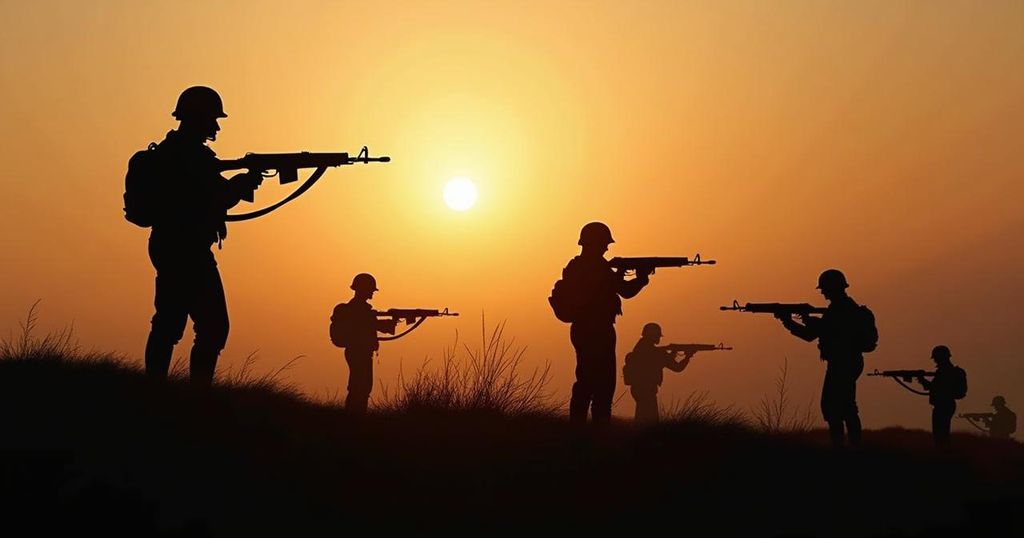Iran has declared that it will not send military forces to support its allies in Lebanon or Gaza amid Israeli airstrikes targeting these groups. Foreign ministry spokesman Nasser Kanani confirmed local forces are capable of defending themselves. The announcement follows the deaths of key figures in Hezbollah and vows from Iranian leadership for retribution against Israel for these actions.
Iran has officially announced that it will not dispatch military forces to Lebanon or Gaza to engage in combat with Israel, according to a statement made by the Iranian foreign ministry on Monday. Nasser Kanani, the spokesman for the ministry, indicated that the local forces in Lebanon and the Palestinian territories possess the necessary capabilities to defend themselves from aggression without assistance from Iran. Recent Israeli airstrikes have specifically targeted areas aligned with Iranian interests, including militant groups across Lebanon, Syria, Yemen, and Iraq. Despite the intensity of these strikes, which have inflicted heavy casualties, including the reported death of Hezbollah leader Hassan Nasrallah, Kanani emphasized that Iran has not received requests to aid these forces. He assured reporters in Tehran that it is evident that local fighters are competent enough to oppose any threat. Furthermore, he asserted that Israel will face repercussions for its actions against the Iranian populace and allied forces. On the same day, Iranian President Masoud Pezeshkian paid respects to Nasrallah in a visit to Hezbollah’s office in Tehran. Iran’s Supreme Leader, Ali Khamenei, reaffirmed that Nasrallah’s death would warrant significant consequences, proclaiming it would not go unpunished. Additionally, the loss of Abbas Nilforoushan, a prominent commander of the Quds Force, was mentioned, with Iran expressing the determination to vindicate his death along with that of Nasrallah. Israeli military reports have indicated that more than twenty members of Hezbollah were killed alongside Nasrallah during the recent conflict, escalating tensions in the region. These developments highlight the intricate relationships between Iran, its allies, and their opposition, setting the stage for ongoing tensions in the Middle East.
This article pertains to the escalating conflicts in the Middle East, particularly involving Iran, Israel, and their respective allies. Iran has been a pivotal supporter of various militant groups in the region, including Hezbollah in Lebanon and factions in the Palestinian territories. The statement from Iran comes in response to a series of Israeli airstrikes targeting these groups, underlining the ongoing hostilities and Iran’s position as a key player in regional defense strategies. The recent death of significant military leaders in these confrontations further complicates the geopolitical landscape, leading to heightened vows of retaliation from Iranian leadership.
In summary, the recent declaration by Iran not to send forces to confront Israeli attacks indicates its confidence in the capabilities of allied groups like Hezbollah. The ongoing Israeli strikes further complicate regional dynamics, evidenced by the deaths of prominent leaders and the vows of retaliation from Iranian officials. These developments signify a potential escalation in the cycle of violence in the Middle East, as both sides prepare for further confrontations.
Original Source: english.alarabiya.net







